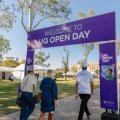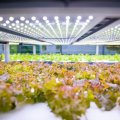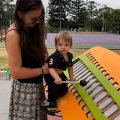China’s experience in developing its tourism industry should be a lesson to others, a leading international academic has told an audience at The University of Queensland.
The University of Surrey’s retired Pro-Vice Chancellor and tourism education and research expert, Professor David Airey, said the Chinese economy grew in no small part on the back of hotels, resorts and sightseeing tours in the late 1980s.
In fact, the establishment of Beijing’s Jianguo Hotel during that time represented the first foreign investment in China, ending centuries of self-reliance and anti-imperialism, Professor Airey said.
He told a crowd of academics, students and staff from UQ’s School of Tourism that Chinese leaders pushed strongly for moves to establish tourism in the late 1980s.
That country’s leaders realised they could not rely only on overseas visitors on sightseeing tours, so they moved to establish resorts to attract more of a slice of the tourist dollar, Professor Airey said.
Tourism was an easy place to start in their bid to grow their economy, given it was not in the national economic plan – and therefore not subjected to layers of stifling bureaucracy, he said.
``Politically, they could not move on the oil industry or the military because it was part of the national plan, so they moved on tourism,’’ Professor Airey said.
``Pre 1978, tourism was viewed as a political and diplomatic vehicle. There was no domestic tourism. That is why tourism was not in the national economic plan.’’
After an ``initial flush of tourism development’’ in China in the late 1980s and early 1990s, some quality standards dropped, Professor Airey said.
``Many hotels were dirty and guides refused to take tourists unless they were bribed,’’ he said.
The Chinese National Tourism Administration introduced voluntary standards for tourist operators, which hotels were quick to adopt to help with attracting foreign investment.
It helped the administration gain strength, adding to its political clout and allowing it to push harder for more tourism development.
School of Tourism acting head, Associate Professor Stephen Craig-Smith, said Professor Airey was among the top 10 tourism academics in the world and having him speak of UQ was a major coup.
The speech was part of a familiarity day at the school, run during Orientation Week to welcome new students and give them an insight into the tourism and hospitality courses, research projects, teaching staff and training spaces used.
The school welcomed more than 140 new undergraduate students at St Lucia and 93 new postgraduate students.
Media: Stephen Craig-Smith (0407 754 686) or Erik de Wit (0417 088 772)
.jpg)









